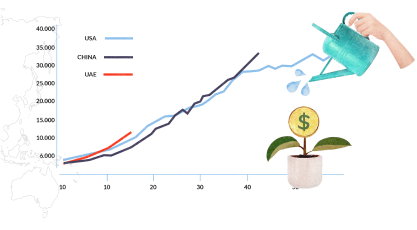Consultancy and Training Competitor Analysis Services
Businesses that regularly conduct competitor analysis are 75% more likely to see an increase in market share compared to those that don’t.
Marketing competitor analysis is the process of researching and analyzing your competitors’ marketing strategies and tactics to identify their strengths and weaknesses.

Who needs Competitor Analysis services?
Businesses across various industries benefit from competitor analysis to gain insights into their competitors’ strategies, strengths, and weaknesses.

What are the benefits of Competitor Analysis services?
Optimize product placement.
Determine product outlook.
Establish benchmarks.

What are the key stages in Competitor Analysis services?
Identifying competitors:
Analyze your brand's strengths and weaknesses.
Evaluating marketing strategies:
Gain valuable insights from product offerings and customer engagement tactics.
Assessing market positioning:
Identify potential gaps or opportunities to help develop a competitive advantage.
Building a strategy - Roadmap:
Develop actionable steps to outperform competitors, optimize market positioning, and drive growth.
HIGHLIGHTING WINS
Realiste - Retailhub
Industry
Technology, Information and Internet
Market
Dubai, UAE
32
Meetings
106%
KPI

Realiste - Retailhub
Industry
Technology, Information and Internet
Market
Dubai, UAE
32
Meetings
106%
KPI

Technaxis
Industry
.
Market
.
Timeline
.
Responsible Team
Sales Development Representative
Researcher
B2B Copywriter
Project manager

Looking for plans and pricing?
Get a preview of our Competitor Analysis services plans starting from $/month!
FAQs
A questions you may ask
Businesses can identify their competitors by conducting market research, analyzing industry reports and databases, performing keyword research, surveying customers, monitoring social media and online forums, attending industry events and conferences, and leveraging competitive intelligence tools and software.
Businesses can assess competitors’ strengths and weaknesses by analyzing their product features and quality, customer reviews and testimonials, brand reputation and recognition, market share and growth rate, pricing strategy and value proposition, customer service and support, innovation and R&D investments, distribution network and reach, and online visibility and engagement metrics.
The different strategies for conducting competitor analysis include SWOT analysis (Strengths, Weaknesses, Opportunities, Threats), Porter’s Five Forces analysis, PESTLE analysis (Political, Economic, Social, Technological, Legal, Environmental), competitive benchmarking, market share analysis, customer satisfaction surveys, and scenario planning.
Some ethical considerations in competitor analysis include respecting competitors’ intellectual property rights (e.g., trademarks, copyrights, patents), avoiding deceptive or unethical tactics to obtain information (e.g., hacking, bribery, espionage), complying with laws and regulations related to competitive practices and data privacy, disclosing sources of information when appropriate, and using competitive intelligence ethically and responsibly to support business goals and decisions.



